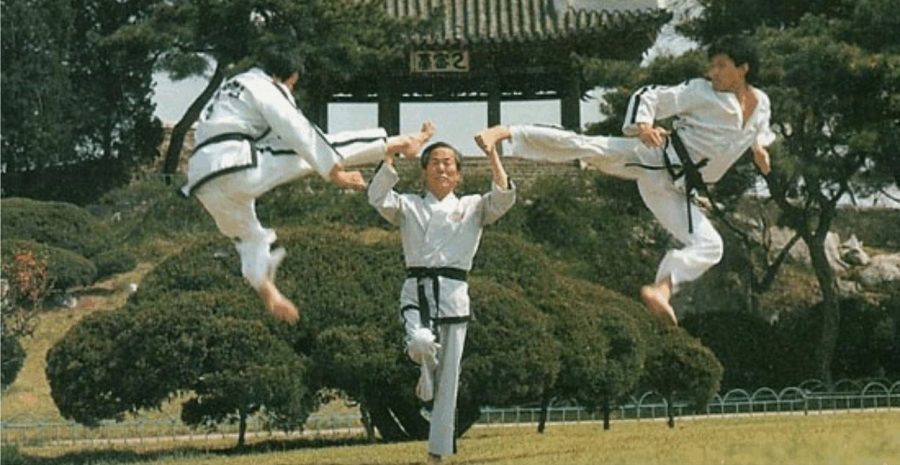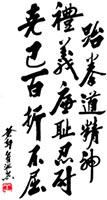History
United Kingdom Taekwon-Do Association
SWAT Taekwon-Do proudly aligns with the United Kingdom Taekwon-Do Association (UKTA), the original and esteemed Taekwon-Do organization in Great Britain. Established in 1967 by First Grandmaster Rhee Ki Ha OCM, the UKTA holds full membership with the International Taekwon-Do Federation and is a founding member of the All Europe Taekwon-Do Federation (now Europe International Taekwon-Do Federation) and the British Taekwon-Do Council (BTC).
The roots of the UKTA trace back to when Grandmaster Rhee Ki Ha, then known as Mr Rhee, 5th Degree, was teaching Taekwon-Do to British Military personnel at RAF Changi. Upon their return to the United Kingdom, they invited Mr Rhee to continue teaching Taekwon-Do in the UK. Mr Rhee arrived on British shores on 2nd July 1967, initially planning to stay for only two years. Little did he know that this would mark the birth of Taekwon-Do in the UK, with the formation of the UKTA. Since then, the UKTA has been at the forefront of Taekwon-Do history in the UK, promoting its practice and growth across the country.


Taekwon-Do Origins
The origins of Taekwon-Do, like many martial arts, are shrouded in mystery. However, it is believed that physical techniques involving the use of hands and feet for self-protection have existed since ancient times. If we were to define these physical actions as “Taekwon-Do,” any country could claim credit for inventing it. However, modern Taekwon-Do as it is practised today is vastly different from the crude forms of unarmed combat developed in the past.
Formally, Taekwon-Do was recognized as an art in Korea in 1955. A special board was formed that included leading master instructors, historians, and prominent leaders of society. On April 11th of that year, the board summoned by General Choi Hong Hi, the father of Taekwon-Do, decided on the name of Taekwon-Do, which had been submitted by him. This unified name replaced the different and confusing terms used previously, such as Dang Soo, Gong Soo, Taek Kyon, and Kwon Bup.

In 1959, Taekwon-Do spread beyond Korea’s national boundaries when General Choi and nineteen of his top black belt holders toured the Far East. The tour was a major success, showcasing the excellence of Taekwon-Do techniques to spectators. Many of these black belt holders eventually went on to spread the art to the world, holding key positions in various countries’ Taekwon-Do associations and organisations.
In 1965, General Choi, who had been elevated to President of the Korea Taekwon-Do Association and deputy commander of the 2nd Army in Tae Gu, was appointed by the Government of the Republic of Korea to lead a goodwill mission to several countries, including West Germany, Italy, Turkey, United-Arab Republic, Malaysia, and Singapore. During this trip, General Choi declared Taekwon-Do as the national martial art of Korea for the first time in Korean history. This declaration laid the foundation for establishing Taekwon-Do associations in these countries and eventually led to the formation of the International Taekwon-Do Federation (ITF) as it is known today.
In 1966, General Choi’s dream came true when the ITF was formed on March 22nd, with associations in Vietnam, Malaysia, Singapore, West Germany, the United States, Turkey, Italy, Arab Republic of Egypt, and Korea. Today, Taekwon-Do is a globally recognized martial art with practitioners and organisations all over the world.
Taekwon-Do Tenets
The Taekwon-Do tenets are the guiding principles that practitioners of this martial art strive to uphold in their training and daily lives. These tenets are:
Courtesy (Ye Ui): Taekwon-Do practitioners are taught to be respectful and considerate towards others. This includes showing respect to instructors, fellow students, and opponents, as well as being polite and courteous in their interactions with others.
Integrity (Yom Chi): Integrity is about being honest, truthful, and having strong moral principles. Taekwon-Do practitioners are encouraged to uphold high ethical standards and to always act with integrity in all aspects of their lives.
Perseverance (In Nae): Perseverance is the ability to keep going despite challenges and obstacles. Taekwon-Do emphasises the importance of perseverance in training, as well as in facing difficulties and setbacks in life with determination and resilience.
Self-Control (Guk Gi): Self-control is the ability to control one’s emotions, impulses, and actions. Taekwon-Do practitioners are trained to have self-control in their movements, techniques, and reactions, as well as in their behaviour and conduct towards others.
Indomitable Spirit (Baekjul Boolgool): Indomitable spirit is the unwavering courage, determination, and fighting spirit that Taekwon-Do practitioners cultivate. It is the mental strength and resilience to never give up, even in the face of challenges, and to always strive for excellence and improvement.
These tenets are considered fundamental to the practice of Taekwon-Do and are emphasised in training and daily life. They serve as a moral and ethical code that guides practitioners to become not only skilled martial artists, but also individuals with strong character and integrity.
